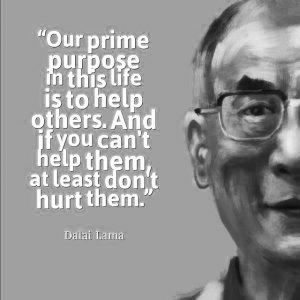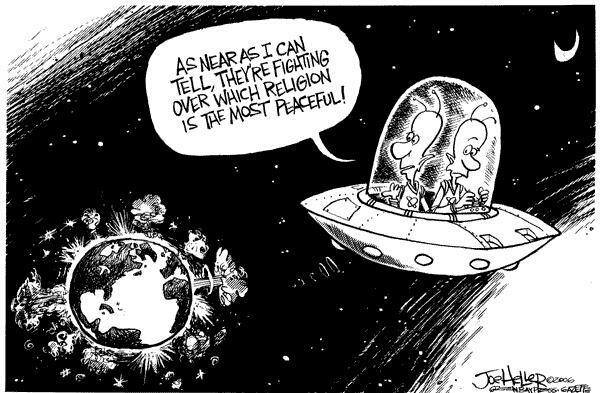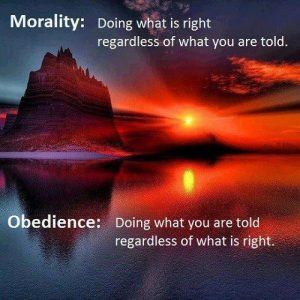Do not do to others what you would not want them to do to you.

“Do not do to others what you know has hurt yourself”
“Why does one hurt others knowing what it is to be hurt?”
“The (proper) punishment to those who have done evil (to you), is to put them to shame by showing them kindness, in return and to forget both the evil and the good done on both sides.”
— Tirukkural (c. 200 BC – c. 500 AD)

“Avoid doing what you would blame others for doing.”
— Thales (c. 624 BC – c. 546 BC)
“What you do not want to happen to you, do not do it yourself either. “
— Sextus the Pythagorean.
“Do not do to others that which angers you when they do it to you.”
— Isocrates (436–338 BC)


“Whatever is disagreeable to yourself do not do unto others. “
— Shayast-na-Shayast (c. 300 BC–1000 AD)
“Treat your inferior as you would wish your superior to treat you.”
— Seneca the Younger (c. 4 BC–65 AD)
“You shall not take vengeance or bear a grudge against your kinsfolk. Love your neighbor as yourself.”
— Judaism


“What is hateful to you, do not do to your fellow: this is the whole Torah; the rest is the explanation; go and learn”.
— Hillel the Elder (c. 110 BCE – 10 CE)
“Thou shalt not hate thy brother. in thy heart; thou shalt surely rebuke thy neighbour, and not bear sin because of him. Thou shalt not take vengeance, nor bear any grudge against the children of thy people, but thou shalt love thy neighbour as thyself.”
“Love your fellow as yourself — Rabbi Akiva says this is a great principle of the Torah.”
— Leviticus

“Do to no one what you yourself dislike.”
— Tobit 4:15
“Recognize that your neighbor feels as you do, and keep in mind your own dislikes.”
— Sirach 31:15
Ascribe not to any soul that which thou wouldst not have ascribed to thee, and say not that which thou doest not.
— Bahá’u’lláh

“One should never do that to another which one regards as injurious to one’s own self. This, in brief, is the rule of dharma. Other behavior is due to selfish desires.”
“By making dharma (right conduct) your main focus, treat others as you treat yourself”
— Brihaspati, Mahabharata
“If the entire Dharma can be said in a few words, then it is — that which is unfavorable to us, do not do that to others.”
— Padmapuraana, shrushti

Hurt not others in ways that you yourself would find hurtful.
— Udanavarga
Nothing which breathes, which exists, which lives, or which has essence or potential of life, should be destroyed or ruled over, or subjugated, or harmed, or denied of its essence or potential.
In support of this Truth, I ask you a question – “Is sorrow or pain desirable to you ?” If you say “yes it is”, it would be a lie. If you say, “No, It is not” you will be expressing the truth. Just as sorrow or pain is not desirable to you, so it is to all which breathe, exist, live or have any essence of life. To you and all, it is undesirable, and painful, and repugnant.
A man should wander about treating all creatures as he himself would be treated.
— Sutrakritanga

“Just as pain is not agreeable to you, it is so with others. Knowing this principle of equality treat other with respect and compassion.”
“Killing a living being is killing one’s own self; showing compassion to a living being is showing compassion to oneself. He who desires his own good, should avoid causing any harm to a living being”.
— Suman Suttam
Zi gong (a disciple of Confucius) asked: “Is there any one word that could guide a person throughout life?”
The Master replied: “How about ‘shu’ [reciprocity]: never impose on others what you would not choose for yourself?”
–Confucius

The sage has no interest of his own, but takes the interests of the people as his own. He is kind to the kind; he is also kind to the unkind: for Virtue is kind. He is faithful to the faithful; he is also faithful to the unfaithful: for Virtue is faithful.
— Tao Te Ching
“I command thee thus, O children of the Earth, that that which ye deem harmful unto thyself, the very same shall ye be forbidden from doing unto another, for violence and hatred give rise to the same. My command is thus, that ye shall return all violence and hatred with peacefulness and love, for my Law is love unto all things. Only through love shall ye have peace; yea and verily, only peace and love will cure the world, and subdue all evil.”
— Wicca

“Try not to do things to others that you would not like them to do to you.”
“Try to treat others as you would want them to treat you.”
— Scientology

Do not do to others what you would not want them to do to you. The single greatest, simplest, and most important moral axiom humanity has ever invented, one which reappears in the writings of almost every culture and religion throughout history, the one we know as the Golden Rule. Moral directives do not need to be complex or obscure to be worthwhile, and in fact, it is precisely this rule’s simplicity which makes it great. It is easy to come up with, easy to understand, and easy to apply, and these three things are the hallmarks of a strong and healthy moral system. The idea behind it is readily graspable: before performing an action which might harm another person, try to imagine yourself in their position, and consider whether you would want to be the recipient of that action. If you would not want to be in such a position, the other person probably would not either, and so you should not do it. It is the basic and fundamental human trait of empathy, the ability to vicariously experience how another is feeling, that makes this possible, and it is the principle of empathy by which we should live our lives.
— Adam Lee, Ebon Musings, “A decalogue for the modern world”
https://en.wikipedia.org/wiki/Golden_Rule


Site Notifications/Chat:
- Telegram Post Updates @JourneyToABetterLife (channel)
- Telegram Chatroom @JourneyBetterLifeCHAT (say hi / share info)
- Gettr Post Updates @chesaus (like fakebook)
Videos:





